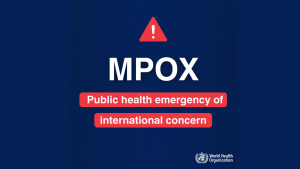Should we be recommending STI testing for all sexually active heterosexual men?

When it comes to getting tested for sexually transmitted infections (STIs), there are some basic guidelines that apply to everyone who is sexually active regardless of sex, gender, or sexual partners. The most obvious piece of advice is to get tested right away if you have any symptoms like itching, burning, sores, or discharge. Of course, a lot of STIs have no symptoms, so it’s also a good idea to get tested when you have a new sexual partner or if you have multiple sexual partners.
There are other more specific screening recommendations for certain populations. For example, the CDC recommends that sexually active women under 25 get tested for chlamydia annually. There are also specific recommendations for gay, bisexual, and other men who have sex with men and for transgender and gender diverse persons. Missing from this list—heterosexual men. Instead, the CDC recommends “risk-based” screening for this population.
Why are there no universal screening recommendations for hetero men?
Screening recommendations are about setting priorities and making the biggest impact with the available resources. With limited funding, emphasis is on groups where infection is common and harm is greater. Young women, for example, are more susceptible to chlamydia infection, and the potential long-term consequences include infertility. Because infection is less common and the health impact less severe, widespread screening for STIs in hetero men is deemed “not cost effective.”
Should heterosexual men be a bigger priority in STI prevention efforts?
At the recent national STI Prevention Conference, Dr. Ina Park—author, sexual health MD, and UCSF professor—argued that we should be thinking differently about screening for hetero men. For one thing, heterosexual men are the ones passing STIs to heterosexual women. We can’t successfully address the rising rates of STIs—especially syphilis—in hetero women without getting men involved.
She also pointed to data that suggests risk-based screening of hetero men is not working in part because too few providers take a sexual health history. Without this information, they can’t accurately assess risk.
Dr. Park noted that men of color are disproportionately affected by STIs and could stand to gain the most if we are successful in STI control efforts among men. “Excluding hetero men from messaging around STI testing,” she concluded, “sends a message ‘your sexual health is not a priority.’”
Ahead of her presentation, Dr. Park took her case to social media with her characteristic humor and a survey.
The response has been near universal—99 percent of those responding agree that providers should recommend STI testing for sexually active heterosexual men.
Do you agree?
More to Explore

Should we be recommending STI testing for all sexually active heterosexual men?
Widespread screening for STIs in heterosexual men is deemed “not cost effective.” Should we reconsider?

New Study Casts Doubt on the Effectiveness of Tubal Ligation
A new study says we might be overestimating just how good tubal ligation (“getting your tubes tied” ) is at preventing pregnancy.

September 30 is National Get Tested Day
ASHA has declared September 30 as National Get Tested Day—a day to raise awareness about the importance of getting tested for sexually transmitted infections.

HPV Vaccination Rates Among Teens Not Going Up
For the second year in a row, HPV vaccination rates among teens have not gone up according to the Centers for Disease Control and Prevention (CDC).

World Health Organization Declares Mpox a “Public Health Emergency of International Concern”
The World Health Association recently declared a global health emergency amid rising cases of mpox. The current outbreak, which began in the Democratic Republic of Congo (DCR), is caused by a deadlier form of the virus than the one that spread throughout the world in

FDA Approves First At-Home Syphilis Test
The FDA recently approved an at-home test for syphilis that can provide initial results in just 15-minutes. Syphilis has been surging in recent years with the number of cases rising 80% between 2018 and 2022 alone.

Survey Says: Americans Have Misconceptions About STIs
How are STIs transmitted? When should someone be tested? A national survey from the Ohio State University Wexner Medical Center finds many in the U.S. struggle when answering those questions.

Sexual Health Lessons from the Olympics
For a brief fortnight or so, the youth of the world are gathered in France to compete as comrades united by the Olympic banner (more or less, we can dream). They’re also knocking boots, and the condoms distributed by the organizing committee have some extra
The post Should we be recommending STI testing for all sexually active heterosexual men? first appeared on American Sexual Health Association.


 MEN?
MEN?


